This week is Graduate and Professional Student Appreciation Week at UNC, and to celebrate we’re thrilled to share stories about our graduate students from this past year! Below are just a few of the stories that we’ve shared about the fantastic achievements of our graduate students in the past year. Our graduate students enrich our campus musical community in so many ways – from acting as teaching assistants for undergraduate courses to teaching summer school courses, from research to publishing papers, and much more.
Today and every day we celebrate the incredible Department of Music graduate students! Thank you!
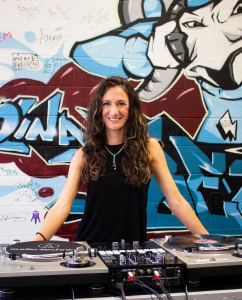 Arts Everywhere Featured Fellow: Kelli Smith-Biwer
Arts Everywhere Featured Fellow: Kelli Smith-Biwer
This feature was originally published on the Arts Everywhere blog on September 29, 2021.
Arts Everywhere is so excited to introduce fourth-year doctoral student Kelli Smith-Biwer as the inaugural recipient of our Graduate Fellowship in Music Technology. This new fellowship is designed to give graduate students in musicology the opportunity to develop creative, scholarly, and pedagogical skills in the area of music technology while serving the campus and broader communities. Drawing on the resources of the Beat Lab (Hill Hall 109) and the Video Presentation Studio (Hill Hall 210), the fellow orients, supports, and collaborates with students, faculty, and staff as well as community artists as they engage with the studios.
Before coming to Carolina, Kelli worked for five years in IT and software testing, and has experience with multimedia production, electronic music composition and performance, video editing, and documentary filmmaking; she is currently writing a dissertation on the gendered buying and listening practices in high fidelity audio culture in the United States. During her fellowship, Kelli will be working in both the Beat Lab and Video Presentation Studio, organizing workshops, and offering technical assistance to students, staff, and faculty.
Read the full feature and interview.
Taking a seat with Carolina’s researchers: Aldwyn Hogg, Jr.
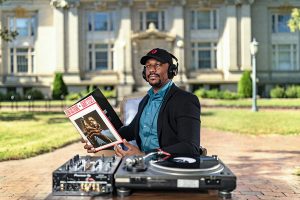
This feature was originally published on unc.edu on December 1, 2021.
Through his research, doctoral student Aldwyn Hogg Jr. studies with a variety of historical and primary sources of sound to demonstrate that no technology is neutral and free from the effect of power relations in society.
“I chose this topic because I am devoted to revealing the often subtle and taken-for-granted links between race, technology and power within this country,” said Hogg. “I listen to the Black sonic technopoetics of four technologies in four historical periods — the industrial washing machine system in the 1930s, the automobile in the 1930s and ’40s, nuclear weaponry in the 1940s and ’50s and the Apollo 11 mission to the moon in 1969 — in order to write novel histories of these technologies.”
Black sonic technopoetics employed within his research also include blues songs from Bessie Smith, swing and jazz tunes from Andy Kirk and spoken word pieces from Gil Scott-Heron.
Hogg also draws from various written sources to supplement his findings — from Black newspapers, such as the Chicago Defender, to memoirs and autobiographies from people, including jazz bandleader Duke Ellington. He even researches formerly classified documents like FBI surveillance records of Paul Robeson, a politically-active singer in the 1940s.
“I hope that my research ultimately accomplishes several things. First, I hope it adds to scholarship on race and technology that is committed to dispelling the illusion that technology is neutral,” Hogg said. “Second, I hope that my concept of Black sonic technopoetics widens the gamut of approaches to studying race, technology, music and sound in the United States. Third, I hope it can write Black people into histories of technologies in which they are otherwise absent or hidden.”
Read about all of the featured researchers.
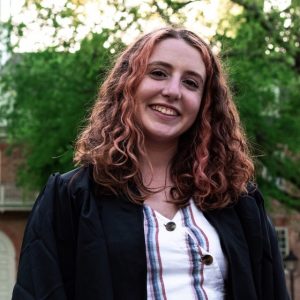
Mary Shannon publishes paper on gender and genre
This feature was originally published on music.unc.edu on October 25, 2021.
The department extends a hearty congratulations to first-year graduate student Mary Shannon on her first publication! Her article “Female Agency in the Chanson de Mal Mariée Genre” was recently published in UCLA’s MUSE Undergraduate Research Journal. MUSE is UCLA’s first undergraduate journal publishing student work in a wide-range of music scholarship subjects.
“Female Agency in the Chanson de Mal Mariée Genre,” analyzes various theories of agency and works of medieval Paris in order to demonstrate that although the representation of women in the mal mariée genre can give a sense of sexual agency and independence to the female speaker, this representation often varies in its application and effectiveness.
“This is my first published article, and I am excited and honored to enter into the scholarly conversation,” said Shannon. “Currently, I am working on expanding my previous work studying Ethel Smyth’s choral symphony The Prison.”
Read more about Shannon’s paper.
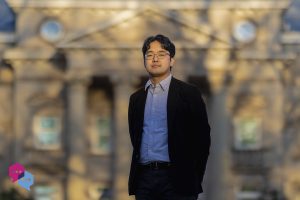
Music that defi(n)es national borders
This feature was originally posted by UNC Research’s endeavors in Creativity, Research UNCovered, Society on January 26, 2022.
Eduardo Tadafumi Sato is a PhD candidate in the Department of Music within the UNC College of Arts & Sciences. He studies how music is defined across national borders and unpacks the social and political definitions of what makes music “national,” specifically within Brazil.
“My research is about writing histories that I find in archives situated across borders. I try to find a balance between a history of Brazilian music written in Brazil and the way in which this history is received abroad. Most of the time I conduct research in an archive, I find documents that throw new light onto these historical narratives. Sometimes, the information I find has ethical implications or challenges a lot of the scholarship, which leads to new questions. So while archives solve some problems, they also create new ones — and I learn a lot in this process.”
Read the full interview with Sato.
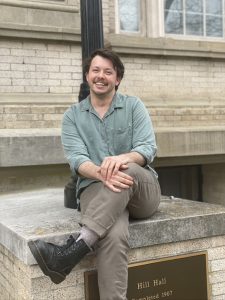 Rediscovering the viola
Rediscovering the viola
This feature was originally published on music.unc.edu on March 8, 2022.
Elias Gross, third-year graduate student, started playing viola at the age of 11. Music has kept a strong and meaningful place in his life and shaped him into the person here today. Gross holds a master’s in viola performance from the University of Delaware and a Bachelor’s in arts administration and art history from the University of Kentucky. In between degrees, Gross worked for six years in non-profit arts leadership, graphic design, and private music teaching. Having played viola for so much of his life, Gross wanted to take a break, so he decided to pursue graduate school on the track of musicology.
Recently, however, the viola came back into his life when he played for Vanessa Davis’ album “Pretty Little Cabin: A Quarantine EP,” which won Album of the Year at the 8th Lexington Music Awards on February 6, 2022. In 2020, he received a Facebook message from a friend from his undergraduate orchestra, asking if he would like to be a part of a remote recording project. With his “yes” mindset, he agreed immediately. The recording was for a quarantine album that Vanessa Davis had written and wanted to bring to life.
Read more about Gross’ journey back to his instrument.
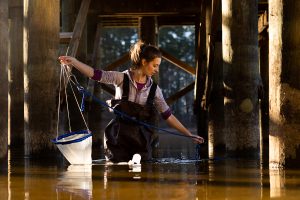
Disassembling Evolution’s Engine
This feature was originally posted on January 13th, 2022 by endeavors. Outside of her biology research, Emily Harmon is the principal oboist with the UNC Symphony Orchestra and has played with the ensemble since 2018.
When we think of evolution, we imagine Charles Darwin’s Galápagos finches, their beaks lengthening or becoming more powerful over thousands of generations to decrease competition by specializing in one food source. Variation, improved survival, and heredity drive the slow process.
Today, animals from corals to birds don’t have centuries to adapt to quickly shifting environments. One of the keys to surviving climate change may be an influence most evolutionary biologists have written off until recently.
Animals changing form or behavior in response to environmental changes within their lifetime is called plasticity — a process Emily Harmon personally experienced while conducting research during the COVID-19 pandemic.
As a UNC-Chapel Hill biology PhD student, Harmon studies how the environment and form of a parent impacts the behavior and appearance of its offspring. For example, an aphid on a crowded plant has offspring with wings so they can fly to a new plant.
Read more about Harmon’s research.
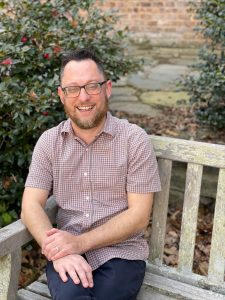 Ph.D. Candidate Mike Levine wins LASA Award
Ph.D. Candidate Mike Levine wins LASA Award
This feature was originally published on music.unc.edu on March 18, 2022.
Congratulations to Ph.D. Candidate Mike Levine, who won the Latin American Studies Association’s Best Student Paper Award in February for his paper titled, “‘Exchanging Cuba for 1 Million YouTube Views’: Piracy, Virality, and ‘Patria y Vida.’”
Levine’s research centers on the Cuban music scene, specifically on how artists and fans gain access to and share music with one another despite the scarcity of traditional internet access, instead utilizing Cuba’s offline internet (called el paquete semanal). This article pulls directly from research for his dissertation titled, “Lo Encontré en El Paquete’: Reparto Music, Media Piracy and Cultural Exchange in Cuba’s Offline Internet.”
Per their website, the Latin American Studies Association (LASA) is “the largest professional association in the world for individuals and institutions engaged in the study of Latin America. With over 13,000 members, over 60% of whom reside outside the United States, LASA is the one association that brings together experts on Latin America from all disciplines and diverse occupational endeavors, across the globe.”
We reached out to Levine about this award and what it meant to him to receive this honor, where it fits into his research and dissertation work, and more.
